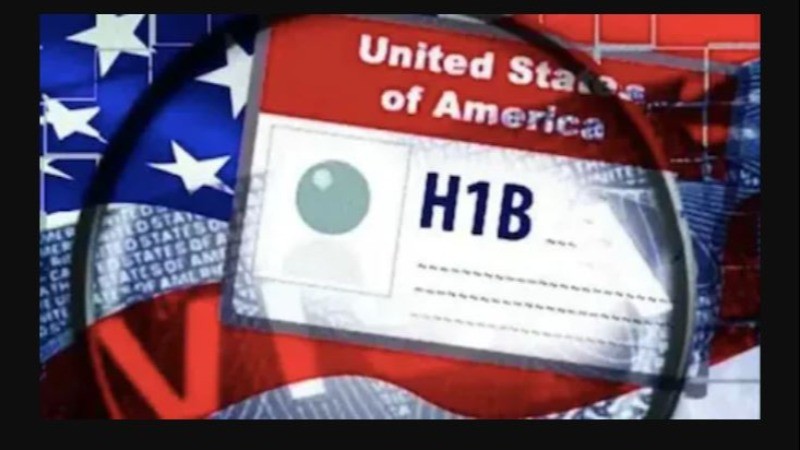
As the US presidential election underway with Donald Trump Leads, the future of the H-1B visa program has become a major concern for many, especially for Indian workers. This visa allows US employers to temporarily hire foreign workers in specialized fields, and both Donald Trump and Kamala Harris have outlined their differing views on how they would handle immigration policy, particularly regarding H-1B visa holders.
The H-1B Visa Program: Key Features
The H-1B visa program, initially designed for skilled foreign workers, has been a gateway for many professionals, especially in the IT and technology sectors. However, under Trump's leadership, the program has seen a number of restrictions and regulatory changes. These included hikes in registration fees and the introduction of additional costs for applicants. In fact, the US Citizenship and Immigration Services (USCIS) increased the H-1B registration fee from $10 to $215, with the application fee rising from $460 to $780. Additionally, a new $600 'asylum fee' was introduced for all H-1B petitions, further inflating costs for applicants.
Kamala Harris's Stance on Immigration Reform
Kamala Harris, the Democratic candidate, advocates for more liberal immigration policies. Her campaign highlights the need for work authorization for spouses of H-1B visa holders, aiming to offer more stability and opportunities for families. Harris also focuses on eliminating discriminatory backlogs that impact applicants from countries like India, China, Vietnam, and the Philippines. However, one key issue that remains unaddressed is the country-specific green card caps, which still limit the chances for workers from countries with high demand, such as India.
Donald Trump's Opposition to the H-1B Visa
On the other hand, Donald Trump has consistently opposed the H-1B visa program, arguing that it puts US workers at a disadvantage. His administration imposed stricter regulations, leading to higher denial rates for visa applicants. One of the most contentious proposals during his first term was a plan to raise the minimum wage for H-1B visa holders, aiming to align their salaries with those of US workers. However, this effort was blocked, and the restrictions remained in place, making it harder for foreign workers to secure H-1B visas.
Declining Registrations and Increased Visa Scrutiny
Over the years, the US government has steadily tightened regulations for work visas, which has led to a significant drop in the number of eligible H-1B registrations. According to the USCIS, there was a nearly 40% decline in registrations for the 2025 fiscal year, with the number of eligible H-1B applicants falling from 758,994 in FY24 to just 470,342 for FY25. This drop is largely attributed to a new 'beneficiary-centric' approach, designed to reduce fraud and ensure more transparency in the system. During the same period, the total number of registrations also saw a significant decrease, dropping from 780,884 to 479,953.
A Crucial Decision for the Future of H-1B Visa Holders
The H-1B visa issue is a critical point of contention in the US elections, with both candidates offering different solutions to address the challenges faced by foreign workers. While Kamala Harris emphasizes a more inclusive and supportive approach, Donald Trump maintains a stricter stance that prioritizes the interests of US workers. As the election draws nearer, H-1B visa holders and potential applicants will be closely watching these developments, as any changes to the program could significantly impact their future in the United States.